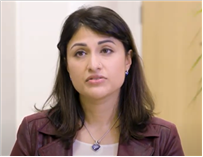|
Medical assistance in dying (MAiD) in Canada: Cases highlighting the risks to vulnerable persons by legalizing assisted dying
|

|
Dr Ramona Coelho
Family Physician – London
(Ontario)
June 23rd, 2023
|
Criteria for death through MAID in Canada:
o 2016 law: reasonably foreseeable death, grievous and irremediable medical condition, voluntary, informed consent including information on other options
o 2021 law:
§ previous law labelled as “Track 1” and many safeguards removed
§ new “Track 2” for people whose death is not reasonably foreseeable, with new criteria
Legal and social circumstances that increase the risk to vulnerable persons:
o The waiting times for many medical and social interventions, including palliative care, are much longer than for MAID
o There is a right to MAID in the law but no positive right to health care
o Cost savings from MAID create a disincentive for health authorities to improve access to care
o Physicians’ negative perceptions of the quality of life of persons with disabilities (ableism)
o Known transient suicidal ideation after acute life-threatening illness
o Media promotion of MAID, disregarding established guidelines on suicide reporting
Some outcomes:
o Easier to access MAID than suicide prevention
o Easier to access MAID than many medical treatments and social supports
o Persons with disabilities afraid to seek medical help in case MAID is proposed to them
MAID advocacy groups deny MAID occurring for social reasons despite being
aware of it
Cases of people who died legally through MAID although they could have benefited from medical treatment and social support (all described in detail in the presentation):
o A woman with delayed diagnosis and inadequate management of a concussion
o A depressed and suicidal man with hearing loss and questionable capacity to consent
o A patient who had had a small stroke with a good prognosis, depressed and isolated because of COVID-19
o An elderly man hospitalized for falls, who developed diarrhea and other complications prolonging his hospital stay, was ridiculed by hospital staff and had MAID proposed to him
Other problematic situations:
o Media glorification of the MAID death of a woman who chose it for lack or medical support
o Disabled veterans offered MAID by government agents
o Choice of MAID related to unacceptable conditions in nursing homes
o Choice of MAID related to inability to find affordable and appropriate housing
Conclusion:
Many international and Canadian human rights, disability and social justice organizations have grave concerns about the law endangering marginalized groups, especially persons with disabilities.
|